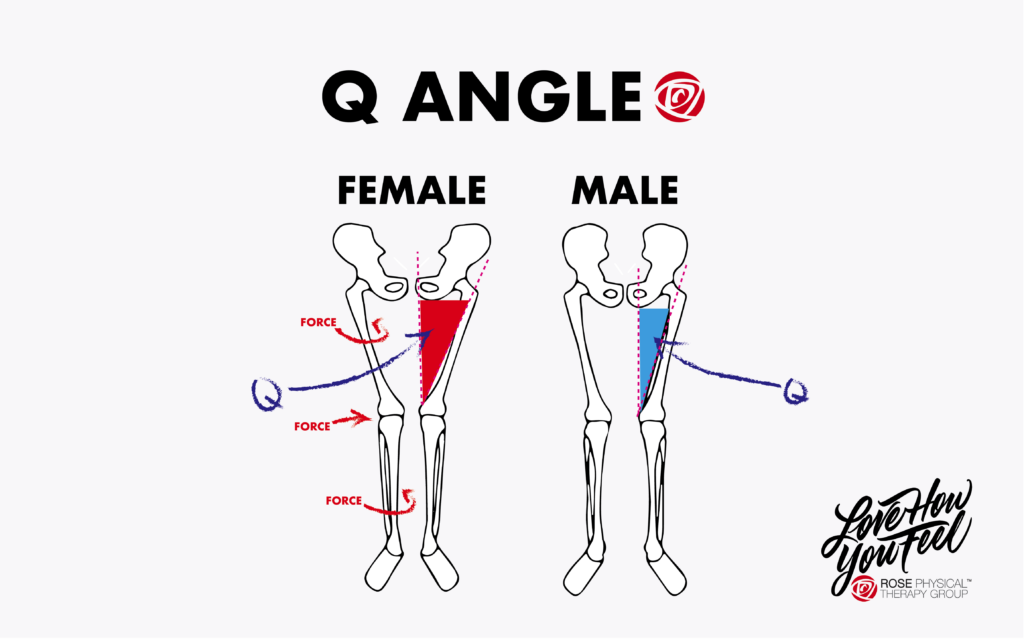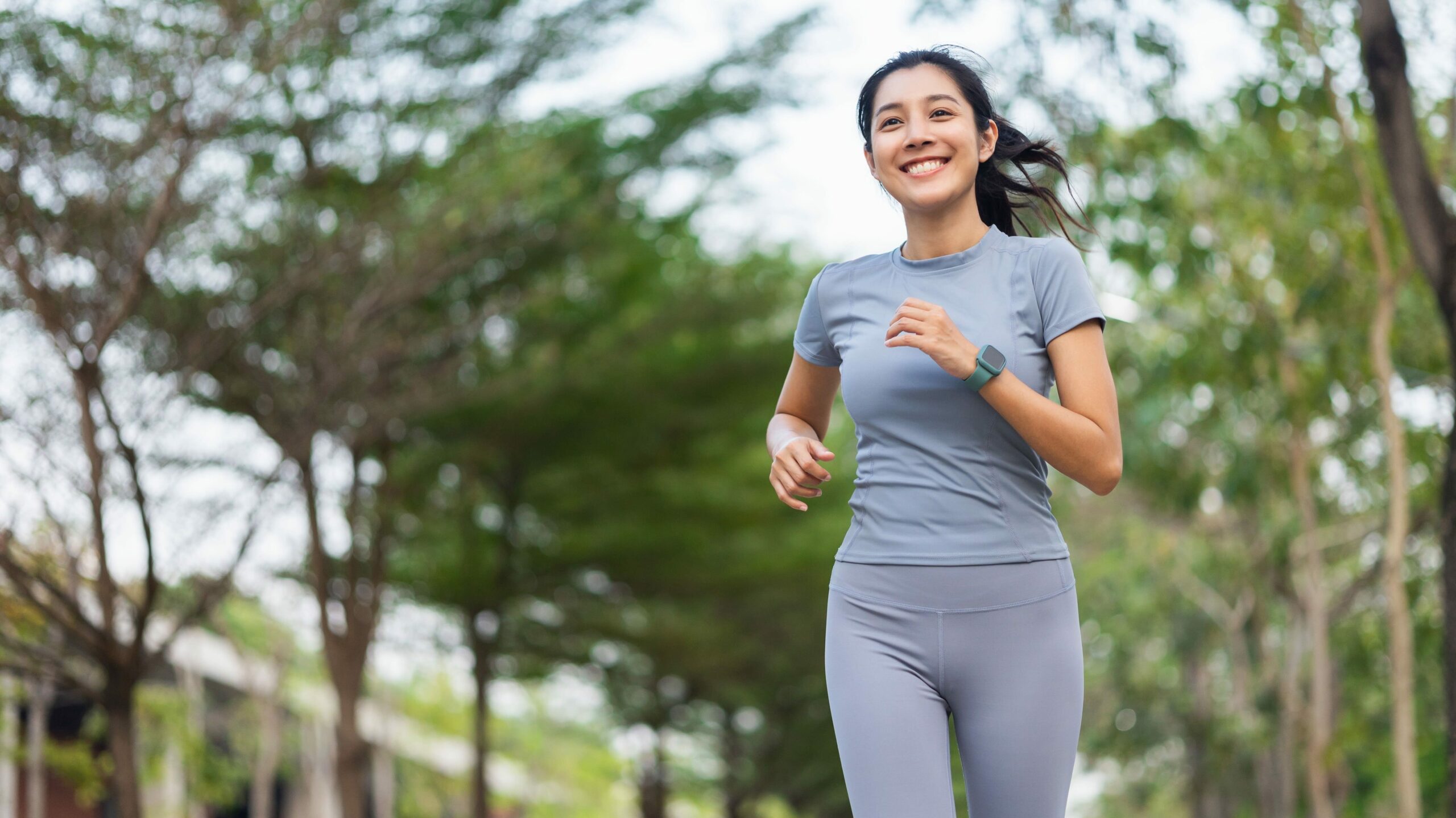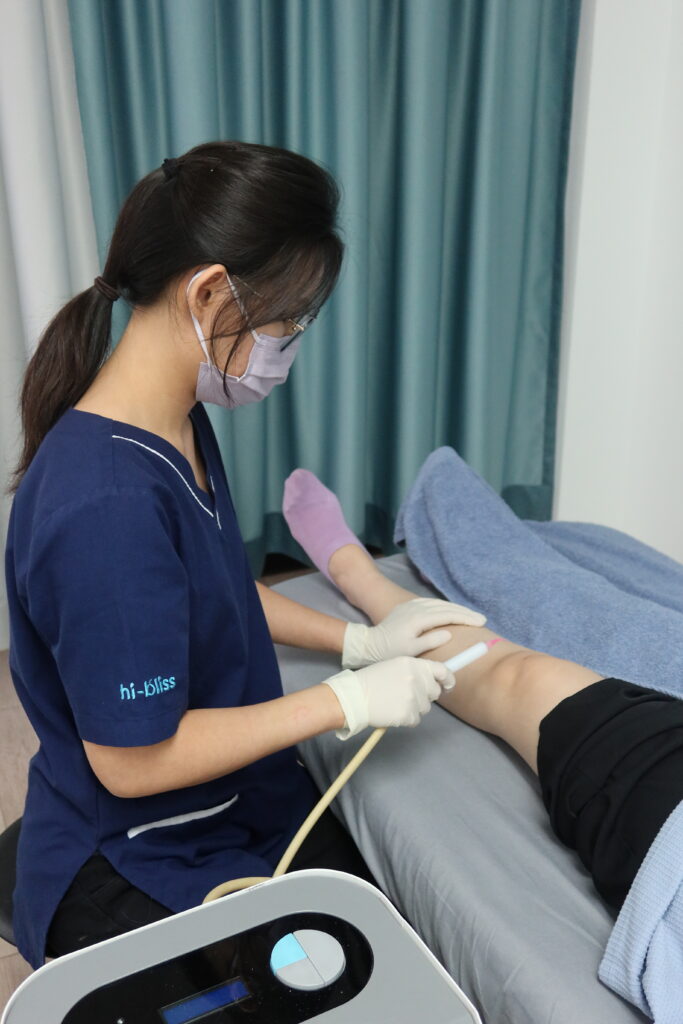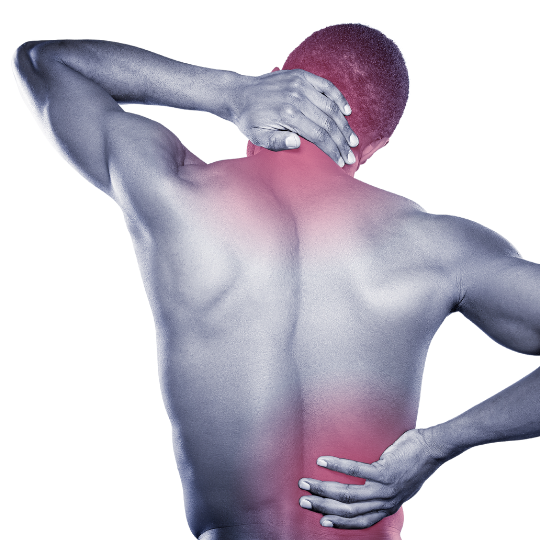Knee problems can affect both men and women. Whether due to athletics, aging, injury, or posture, all can be factors contributing to knee pain. However, women are reported to be 2 to 8 times more likely than men to experience knee pain and injuries, regardless of their level of physical activity1. The World Health Organization also states that 60% of osteoarthritis patients are women2. But how does this happen?

The unique qualities of women's knees can be observed through the differences in their hips. Women's hips tend to be slightly wider than men's, affecting the positioning of their leg bones in relation to the pelvis. Their knees are more likely to tilt inward while the ankles remain spaced apart. This can result in increased stress on the anterior cruciate ligament (ACL), the crucial tissue that connects and stabilizes the thigh bone to the shin at the knee joint. The variation in alignment can also impact the way they walk, run, and perform other lower-body movements.
2. Hormones

Estrogen is known to have positive effects on maintaining bone density and promoting increased flexibility in joints. However, during the menstrual cycle, estrogen levels fluctuate, and when this occurs, it may be associated with a higher likelihood of knee and ankle injuries.
3. Muscle imbalance

In women's muscle development, their quadriceps (front thigh muscles) tend to become stronger than the hamstrings (back thigh muscles), creating an imbalance in muscle strength that can potentially affect joint stability and function. This imbalance becomes evident during activities such as running, jumping, or even simple movements like walking, putting increased stress on the knee joint. This imbalance may contribute to issues such as knee pain, instability, or an elevated risk of injuries, including anterior cruciate ligament (ACL) injuries during those activities.
4.Wearing heels for long period of times

The heightened stress resulting from habitual wearing of high-heeled shoes among women can potentially impact the alignment and function of the knee joint during each step. When wearing heels, the body’s weight shifts forward, placing increased pressure on the balls of the feet and altering the distribution of forces throughout the lower limbs. Over an extended period, the repetitive stress and altered biomechanics associated with wearing high heels can lead to chronic issues.
If knee pain persists, worsens, or is accompanied by other concerning symptoms, it is advisable to seek medical advice for a proper diagnosis and treatment plan. However, if the pain is mild or moderate, it can also be treated at home with self-care measures. Here are some self-care measures that may help alleviate mild knee pain3.

R - Rest: Give your knee some time to rest and avoid activities that may worsen the pain. This can help prevent further irritation or strain.
I - Ice (Cold Packs): Applying ice packs to the affected area can help reduce inflammation and numb the pain. Avoid applying ice directly to the skin. Wrap the ice in a towel or use an ice pack to apply on the painful area. Apply it to the knee for about 15-20 minutes at a time.
C - Compression: Use a compression bandage to help reduce swelling and provide support to the knee. Ensure that the bandage is tight enough to support circulation but not too tight to hamper it.
E - Elevation: Elevating the leg when resting can help minimize swelling. Prop your leg up on a pillow or cushion to keep it elevated.

Practice gentle and low-impact exercises to maintain flexibility and strength in the knee. Always warm up before exercising and cool down afterward. Stretch the muscles in the front of your thigh (quadriceps) and in the back of your thigh (hamstrings).
Being overweight can put excessive strain on your knee. Therefore, maintaining a healthy weight through proper diet and exercise can help alleviate stress on the knees.
Wearing shoes with cushioned insoles can help reduce strain on your knees and alleviate knee pain. Choosing supportive and comfortable shoes can also contribute to proper alignment, especially during weight-bearing activities.
However, if your knees are experiencing severe pain, do not delay seeking medical help. It's essential to listen to your body and avoid pushing through severe pain. If home remedies do not bring relief, or if the pain persists, consult with a healthcare professional and physiotherapist for a thorough evaluation and appropriate treatment recommendations.

Hi-Bliss Hydrogen therapy combines molecular hydrogen with physiotherapy to address various health conditions, including muscle and joint pain. At Hi-Bliss, we have successfully assisted over 1000 customers suffering from joint pain, particularly in the knee and shoulder areas.
Our hydrogen therapy treatment is primarily 100% natural and non-invasive. You can rest assured as the treatment is pain-free and has no side effects afterward. During the session, patients may experience the infusion of cool air onto their skin, promoting a sense of calm and relaxation.
Moreover, hydrogen's unique ability to selectively eliminate toxic free radicals causing oxidative stress and reduce inflammation in the joint area helps prevent further damage to joint tissues. This therapeutic effect has proven effective in reducing knee pain and providing long-term relief. Protect yourself from potential knee injuries in the future. If you're experiencing pain in your knee or any joint area, consult with a healthcare professional to prevent worsening. Take proactive steps towards healthier joints today with Hi-Bliss!
Hi-Bliss Hydrogen Therapy and Compassionate Care Foundation was featured in 8TV's Living Delight program on 17th May 2019.
Interested to know more?
Get in touch with us now through these channels below : -
Tel: - 012-2355729
